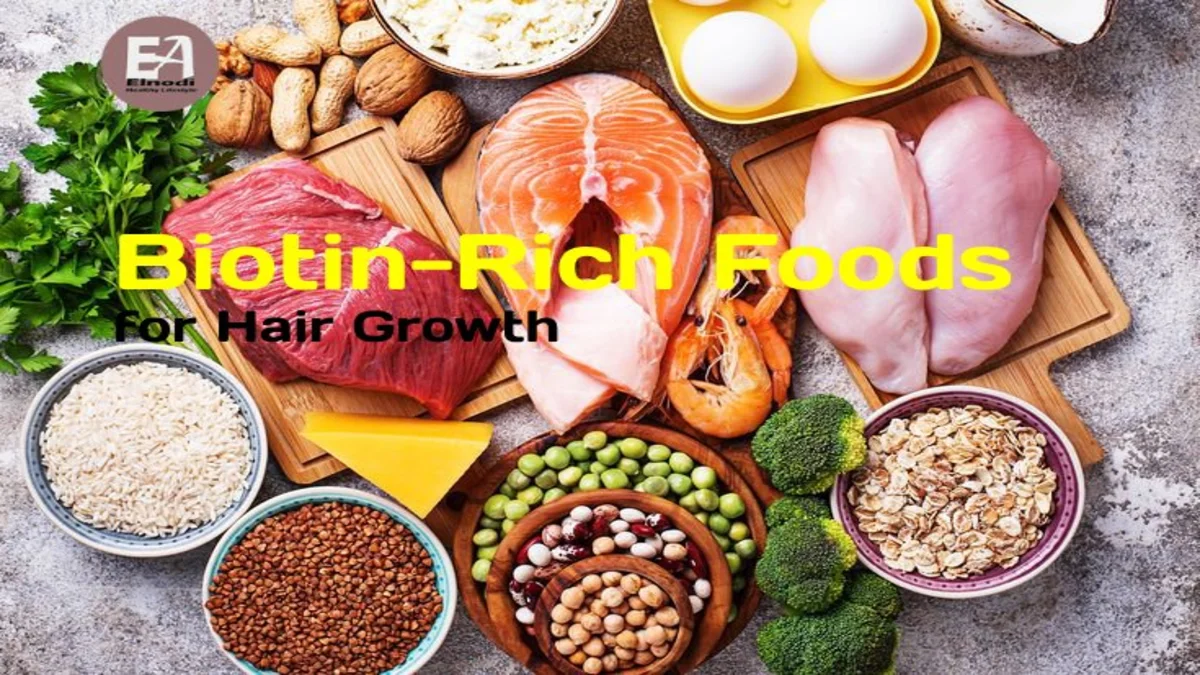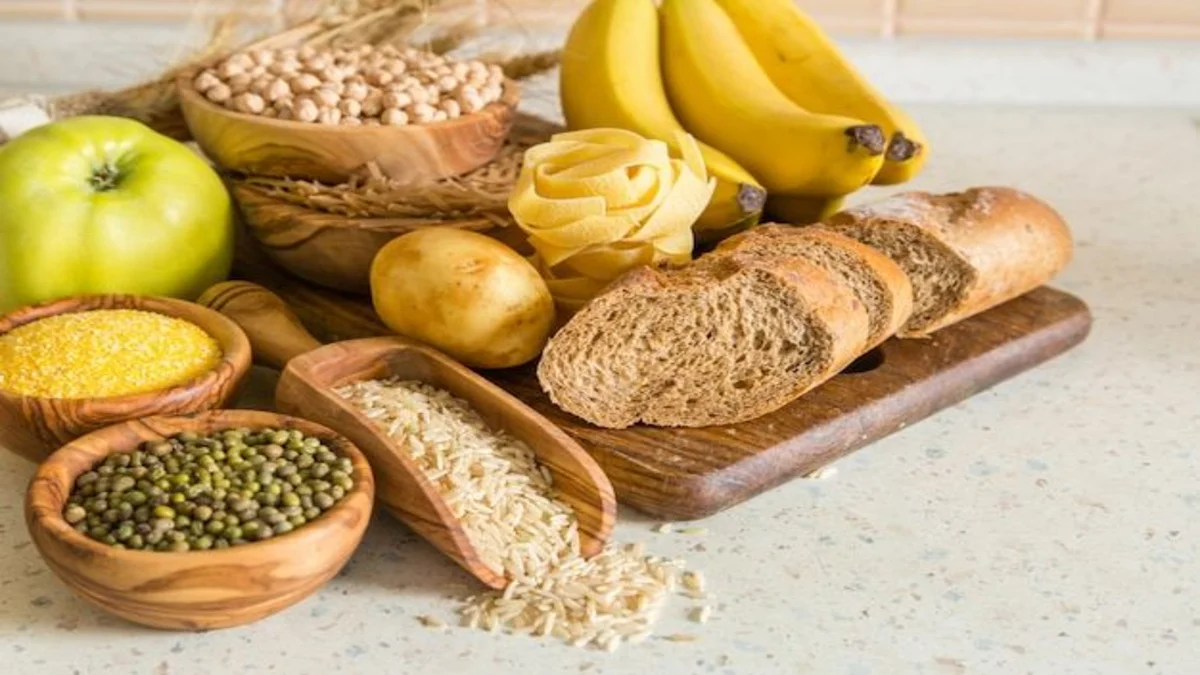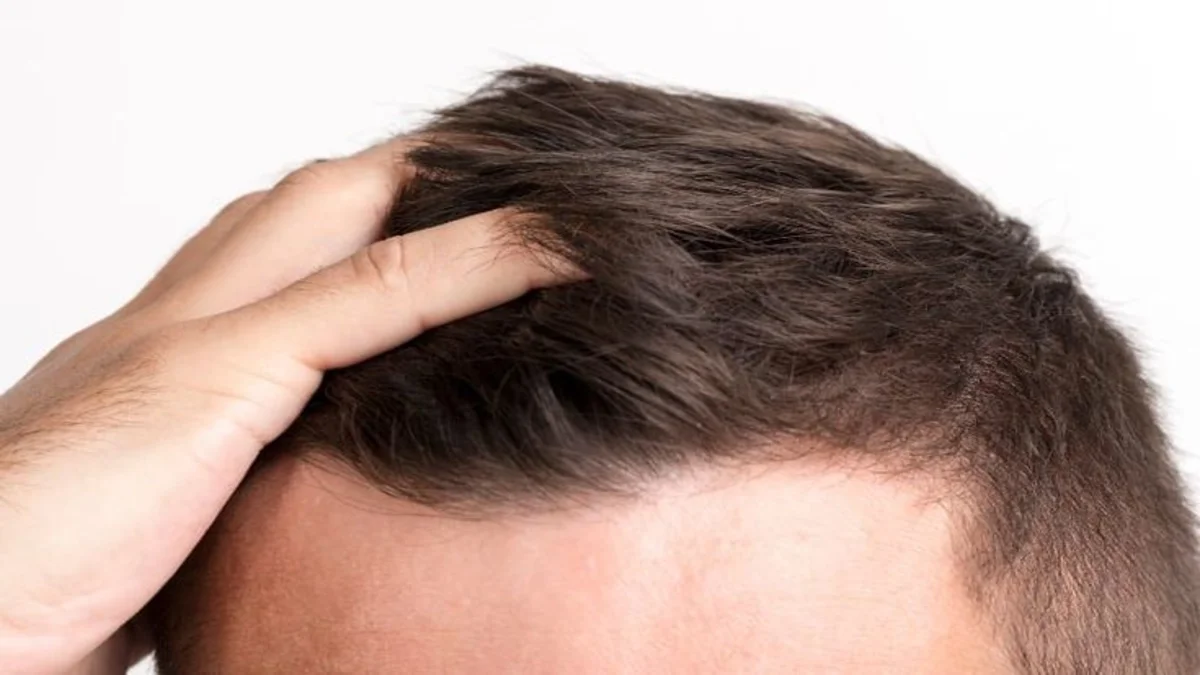Looking for natural ways to promote hair growth? Check out these biotin-rich foods for hair growth that can help you achieve healthier & stronger hair
Biotin has gained popularity in the beauty and health industry for its ability to support hair growth and maintain healthy nails and skin. While biotin supplements are widely available, getting your daily dose through natural sources is always the best option.
What is Biotin?
Water-soluble vitamin biotin, sometimes referred to as vitamin B7 or vitamin H, is essential for several bodily metabolic activities. It is especially crucial for the metabolism of proteins, lipids, and carbohydrates. To keep your skin, nails, and hair healthy, you need biotin. It is frequently taken as a supplement to strengthen, enhance the texture, and encourage hair growth. Natural sources of biotin include fish, eggs, nuts, seeds, and some vegetables.
Benefits of Biotin for Hair Growth
Encourages Keratin Production: The protein keratin is what gives hair its structure, and biotin helps to produce it. Stronger, healthier hair strands can be attributed to adequate quantities of biotin.
Increases Hair Growth: By stimulating hair follicles, biotin aids in increasing hair growth. Over time, it can result in thicker and longer hair.
Prevents Hair Loss: Hair loss has been connected to a biotin deficit. Make sure your body has enough biotin to help stop hair loss and thinning.
Enhances Hair Texture: Biotin makes hair smoother, shinier, and more damage-resistant by helping to maintain a healthy hair texture.
Supports Scalp Health: By encouraging appropriate circulation and nutrition delivery to the hair follicles, biotin helps to maintain a healthy scalp environment.
Minimizes breaking: Biotin supplements make hair strands stronger and less prone to breaking, which gives the appearance of healthier hair overall.
Combats Dryness: By assisting the hair in holding onto moisture, biotin helps to lessen brittleness and dryness.
Enhances Thickness: Consuming biotin regularly may cause hair to become thicker and appear fuller.
Best Biotin-Rich Foods for Hair Growth
1. Legumes
Legumes are rich sources of fiber, protein, and minerals; peas, beans, and lentils are a few examples. Two of the highest biotin-containing foods in this group are peanuts and soybeans. Legumes are usually cooked and then added to baked dishes or stir-fries, or they can be the foundation of salads, entrées, and curries.
- Lentils: Approximately 0.41 micrograms of biotin per 100 grams.
- Chickpeas (Garbanzo Beans): Approximately 0.24 micrograms of biotin per 100 grams.
- Black Beans: Approximately 0.34 micrograms of biotin per 100 grams.
2. Mushrooms
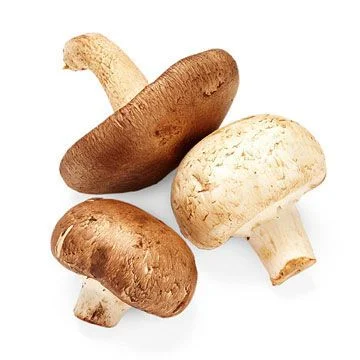
In addition to antioxidants, mushrooms also contain minerals including magnesium and selenium. Fresh button mushrooms also provide 5.6 mcg of biotin per cup. Try including mushrooms in salads, stir-fries, sandwiches, and substantial winter soups.
- Portobello Mushrooms: Approximately 5 micrograms of biotin per 100 grams.
- White Mushrooms: Approximately 0.1-0.2 micrograms of biotin per 100 grams.
- Shiitake Mushrooms: Approximately 5 micrograms of biotin per 100 grams.
3. Sweet potatoes
Sweet potatoes are rich in antioxidants called carotenoid pigments, vitamins, minerals, and fiber. They are among the greatest vegetable suppliers of biotin. Sweet potatoes can be roasted or cooked on the stovetop until they are soft. They can be made into fries or mashed potatoes by peeling, boiling, and mashing them. Shakar Gundi, another name for sweet potatoes, is a delectable winter dish.
2-3 micrograms of biotin per 100 grams
4. Egg yolks

Eggs are a great source of protein, iron, phosphorus, and B vitamins. There is a lot of biotin in the yolk. Eggs should always be fully boiled to reduce the danger of salmonella contamination and to improve absorption of biotin. Egg whites include a protein known as avidin, which can obstruct the absorption of the vitamin biotin if eaten raw.
25-30 micrograms of biotin per 100 grams
5. Salmon
Salmon and other fatty fish are rich sources of omega-3 fatty acids, which are well known for their capacity to reduce inflammation in the body. Furthermore, 3 ounces of cooked salmon provides 5 milligrams of biotin, making it an excellent source of the vitamin. Because it contains healthy lipids, salmon is an excellent diet for maintaining healthy skin and hair.
5-6 micrograms of biotin per 100 grams.
6. Seeds
Seekers of essential vitamins, minerals, and heart-healthy fats, seeds are often called “superfoods.” Hemp seeds, for example, are rich in minerals such as calcium, magnesium, phosphorus, iron, zinc, and copper and also contain a large quantity of fiber. They also contain a significant amount of biotin.
- Sunflower Seeds: Approximately 66 micrograms of biotin per 100 grams.
- Chia Seeds: Approximately 1.6-2.6 micrograms of biotin per 100 grams.
- Flaxseeds: Approximately 10 micrograms of biotin per 100 grams.
7. Almonds
Almonds contain 1.5 mcg of biotin per quarter cup, making them a potent source. Almonds also include monounsaturated and omega-3 fatty acids, which improve heart health and reduce inflammation. They also include vitamin E, which is another essential component for skin and hair health. To boost your daily dose of biotin, try eating almonds with oatmeal or another item that’s high in the nutrient. If you would rather create a trail mix, add the 0.8 mcg of peanuts and almonds together.
3-4 micrograms of biotin per 100 grams.
8. Bananas
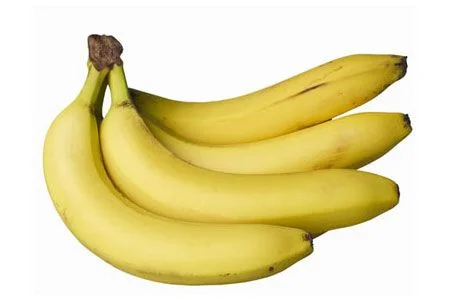
The famous fruit banana contains a negligible amount of biotin. They also provide many more benefits since they include fiber, carbs, and minerals including potassium, copper, and B vitamins.
0.2-0.5 micrograms of biotin per 100 grams.
Biotin Deficiency Symptoms
A healthy, well-balanced diet provides most people with a daily amount of biotinidase, making the disease rare. Large amounts of the vitamin biotin are found in many everyday foods, helping to prevent biotin insufficiency. However, if a patient’s biotin levels fall off abruptly, they may have typical symptoms like:
- Dry and scaly skin
- Brittle nails
- Thinning hair
- Fatigue
- Insomnia
- Loss of appetite
- Muscle pain
- Seizures
- Numbness or tingling in the hands and feet
The challenge in detecting biotin insufficiency is that its symptoms are frequently mistaken for those of other medical disorders. Only blood tests that compare a patient’s biotin level with other blood components can determine whether or not they have a biotin shortage.
FAQs
Can Biotin Grow Hair Back?
How Can I Thicken My Hair?
Make sure the conditioner and shampoo you select don’t add too much weight to your hair.
You can keep your hair and scalp healthy by using less heat styling equipment and steering clear of over-conditioning in the shower.
Consuming foods high in biotin can help your hair.
How Much Biotin for Hair Loss Do You Need?
People often obtain appropriate levels of biotin from a wide variety of foods, so they rarely need to alter their normal diet. Additionally, as biotin is a water-soluble vitamin, the body just needs to flush away excess biotin, overdosing on it is uncommon.
References
- David C. Nieman, May 2017; Bananas as an Energy Source during Exercise: A Metabolomics Approach – https://www.ncbi.nlm.nih.gov/pmc/articles/PMC3355124/
- Muthukumaran Jayachandran, September 2017; A Critical Review on Health Promoting Benefits of Edible Mushrooms through Gut Microbiota – https://www.ncbi.nlm.nih.gov/pmc/articles/PMC5618583/
- Rani Polak, October 2015; Legumes: Health Benefits and Culinary Approaches to Increase Intake – https://www.ncbi.nlm.nih.gov/pmc/articles/PMC4608274/
- Emilio Ros, June 2010; Health Benefits of Nut Consumption – https://www.ncbi.nlm.nih.gov/pmc/articles/PMC3257681/


